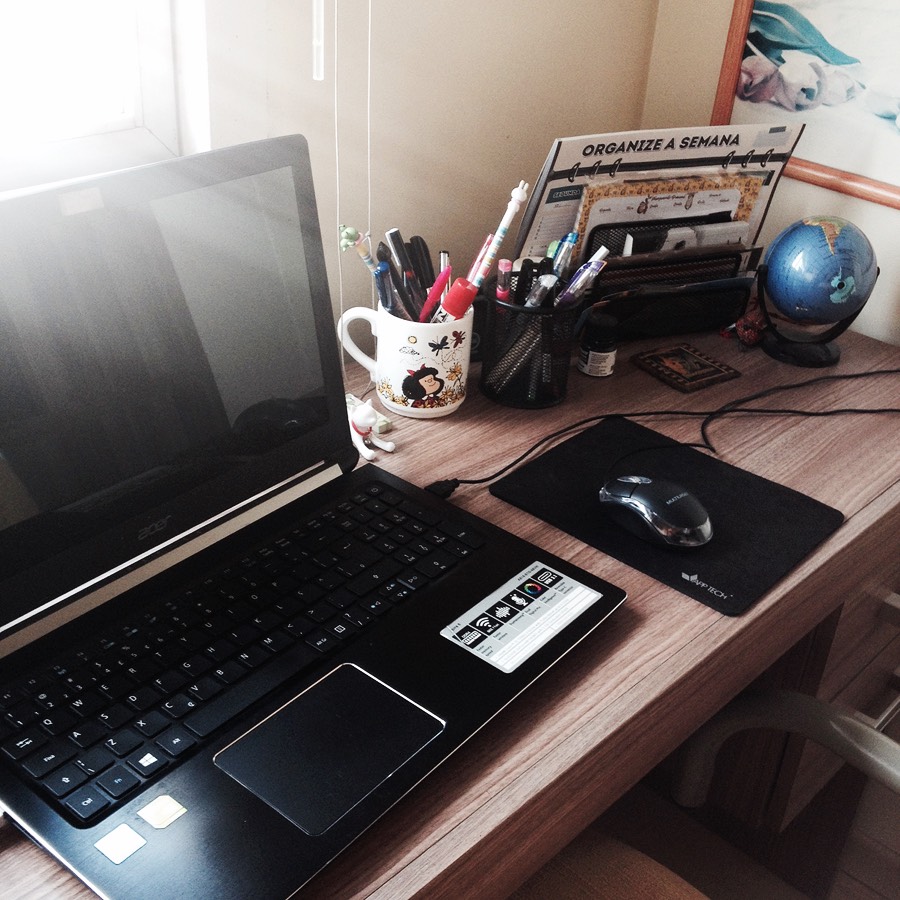Trauma, culture and violence — those are some of the elements of my work that I once found very hard to sell. In Brazil, there are little options for writers, and the international market felt unattainable at times. It still does, but a lot of things have changed since 2017.
When I submitted my application, I had little stories out in the world, and was in the middle of a health crisis caused by chronic illness and caregiver burnout. I didn’t even have a place to write: I wrote either in the kitchen, or in a box on my bed. The Tiptree fellowship helped me have better work environment, one I would not have been able to afford otherwise. Not only that, but it also gave me motivation to keep trying again and again. I have written more, published more, and had the chance to participate in the fellowship committee to give someone else this chance, a rewarding moment in its own right.
Today, I have my own desk, and stories out at Clarkesworld, The Dark and Samovar, among many other wonderful venues. Brazil is going through a terrible moment, but our literary market is slowly growing, and at least two new speculative magazines have began in the last years. My novelette “Saligia” (published in March by Samovar in English and Portuguese) is only one example of a story where I was able to examine gender in the way I told Tiptree I hoped to, back in that one application. It also made me sure there is a public for what I write, a feeling I hadn’t experienced before that.
Overall, the fellowship was an amazing incentive, and I’m more than happy to pass it along to the 2018 fellows. My focus continues to be on writing fiction and comics, and hopefully, soon I will be able to explore the realm of longer fiction too.

